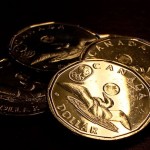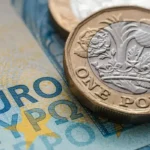Gold futures were little changed during early trade in Europe today, as investors eye the upcoming ECB meeting, set to decide on further monetary stimulus for the struggling EU economy. US employment data is also on the radar, while expected developments on the crisis in Ukraine are also keenly monitored.
Gold futures for December delivery on the Comex in New York traded at $1 271.2 per troy ounce, up 0.07%, at 7:26 GMT. Prices ranged from $1 268.9 to $1 274.4 per troy ounce. The precious metal added 0.4% yesterday, though not before reaching a ten-week low of $1 261.9.
Silver for September delivery stood for a 0.07% daily increase at $19.203 per troy ounce, December palladium was up 0.52% at $880.50, backing off from a 13-year high from Monday. October platinum was up 0.03% at $1 412.90.
Gold traders focus today will be on an upcoming European Central Bank meeting and interest rate decision. The ECB is expected to announce some kind of accommodation, as the Eurozone is struggling to restart economic growth. Analysts expect the interest rate to remain unchanged at 0.15%, while a quantitative easing program of sorts is highly probable.
Should ECB take a more dovish stance, it would hurt the euro, which in turn strengthens the dollar and pressures gold.
“The ECB meeting is more likely to be gold-bearish than gold-bullish,” HSBC analysts said in a note. “Gold is likely to be more influenced by US unemployment data due at the end of the week and the general direction of the dollar.”
The US dollar is a major influence on gold prices, since gold, like most other commodities, is denominated in dollars. Hence, a stronger greenback increases the cost of gold to foreign currencies, lowering the precious metals investment appeal.
The US dollar reached a 15-month high against six other major currencies yesterday, and upcoming employment data from the US could further boost the greenback.
ADP will post its advanced figure on new payrolls today, ahead of the official figure on Friday. The US economy is projected to have added more than 220 000 jobs last month, while the unemployment rate probably dropped to 6.1%, the lowest level in almost six years.
“Bullion prices are likely to stay under pressure, especially if the US dollar gains,” James Steel, an analyst at HSBC Securities, wrote in a note cited by Bloomberg. “Although geopolitical events do not normally drive prices longer term, they may have greater influence on gold in the near term.”
Ukraine
Events in Ukraine were a strong secondary driver for gold pricing in the past year, but the confrontation might just be heading for a peaceful resolution. Ukrainian President Petro Poroshenko and his Russian counterpart Vladimir Putin have reached an agreement over a peace process in the embattled eastern regions of Ukraine. Mr Putin said a conclusive deal might be struck as early as tomorrow.
The peace initiative is foreshadowed by a NATO summit in Wales starting today, which should see the western powers take a firm stance against Russian aggression towards Ukraine. Kiev just yesterday approved a law to apply for NATO membership.
Also, the EU should have a more clear stance on further economic sanctions against Russia by the end of the week, with France deciding to halt the delivery of two warships to Russia, in light of the latest accusations against the Kremlin.
Investors continued betting on peace in Ukraine, as signaled by the drop in assets at the SPDR Gold Trust. Gold holdings dropped ~2.5 tons on Wednesday, reaching the lowest level in more than two months, losing in sync with gold prices.
Technical support and resistance levels
According to Binary Tribune’s daily analysis, December gold’s central pivot point on the COMEX stands at $1 268.2. In case futures manage to breach the first resistance level at $1 274.5, the contract will probably continue up to test $1 278.7. In case the second key resistance is broken, the precious metal will likely attempt to advance to $1 285.0.
If the contract manages to breach the first key support at $1 264.0, it will probably continue to slide and test $1 257.7. With this second key support broken, the movement to the downside may extend to $1 253.5.





